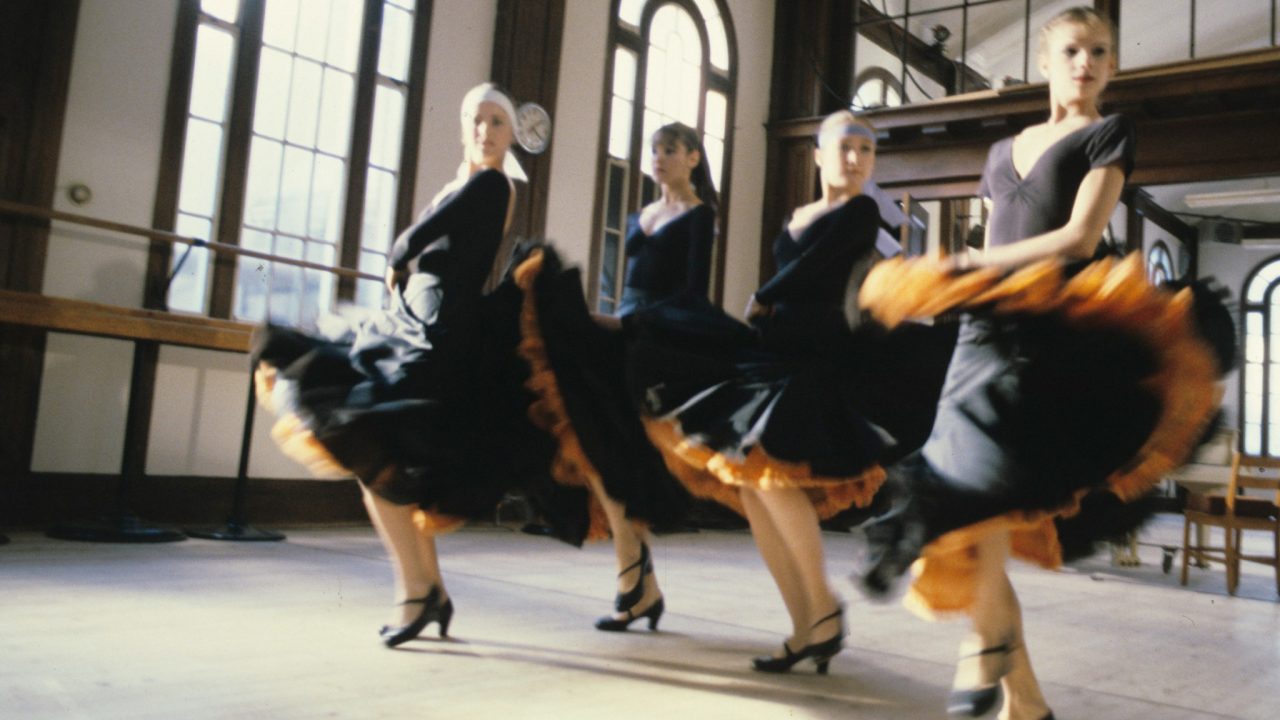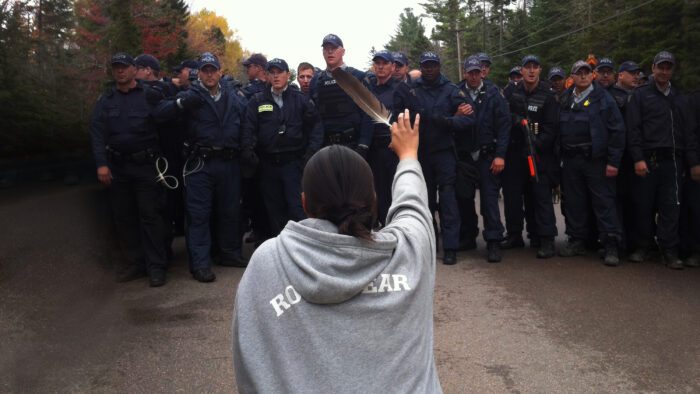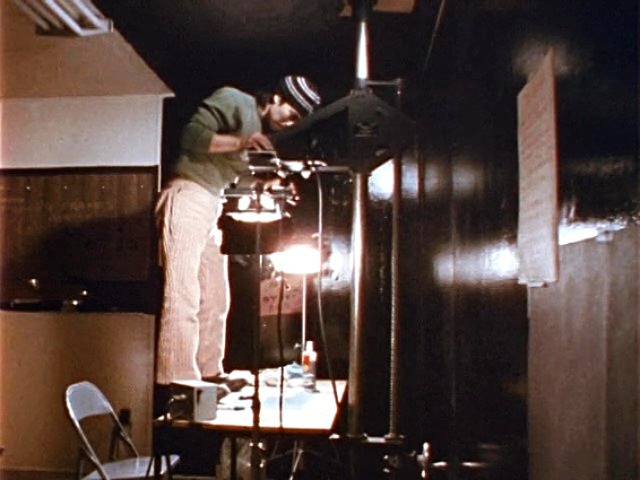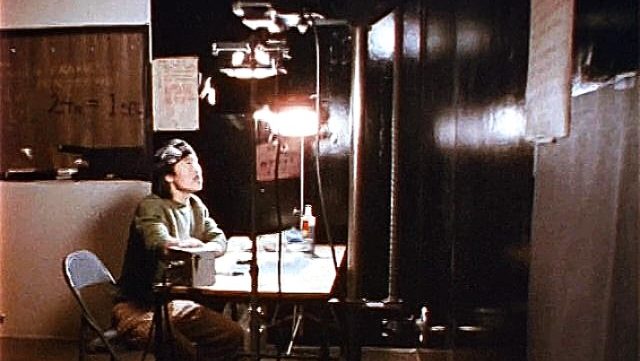
Women at the NFB: Firsts, Nominees and Oscar Winners | Curator’s Perspective
Women at the NFB: Firsts, Nominees and Oscar Winners | Curator’s Perspective
In 2016, the National Film Board of Canada launched a pioneering gender parity initiative. Since then, the NFB has maintained its commitment to ensuring that half of its productions are directed by women and half of its key creative positions—screenwriting, editing, sound mixing, cinematography—are filled by women.[i] But women have actually been breaking ground at the NFB from its very earliest days as Canada’s public producer.
In the spirit of celebrating both International Women’s Day and the nomination of Amanda Forbis and Wendy Tilby’s The Flying Sailor for Best Animated Short at the 95th Academy Awards, this instalment of Curator’s Perspective is devoted to the landmark films that have been directed by women at the NFB over the decades.
The Flying Sailor, Amanda Forbis & Wendy Tilby, provided by the National Film Board of Canada
The Firsts: A Brief Chronology
The NFB has played a major role in empowering Canadian women filmmakers since its inception. In 1940, just one year after it was created, the NFB distributed its first film directed by a woman: Judith Crawley’s Four New Apple Dishes (digitized and made available to the public this month), a short about nutrition for kids. The first francophone film made by a woman at the NFB was Anne Claire Poirier’s 30 minutes, Mister Plummer (1963), a documentary film that profiles Canadian actor Christopher Plummer. And The Impossible Map (1947) was the first NFB animated film to be directed by a woman, namely “the First Lady of Canadian Animation” herself, Evelyn Lambart. Using a grapefruit, this film illustrates the difficulty of presenting a true picture of the world on a flat surface.
The Impossible Map, Evelyn Lambart, provided by the National Film Board of Canada
It was Challenge for Change—the participatory film and video project that revitalized the NFB in the sixties—that produced the first NFB film directed by an Indigenous woman, Barbara Wilson, about Indigenous characters, communities and perspectives: These Are My People… (1969), co-directed by Michael Kanentakeron Mitchell, Willie Dunn and Roy Daniels. Soon after, Marilú Mallet became the first Latin American woman to direct a film at the NFB; Lentement (1974) deals with the difficult conditions of exiles and the problem of integration into a new social environment. And just one year later, Irene Angelico, born in Munich, became the first European woman to direct an NFB film: “… and They Lived Happily Ever After” (1975-digitized and made available to the public this month), which “takes a long, hard look at marriage and motherhood as expressed in the views of a group of young girls and married women.”[ii]
‘… and They Lived Happily Ever After’, Kathleen Shannon, Irene Angelico & Anne Henderson, provided by the National Film Board of Canada
The first Black, Middle Eastern and Asian women made their NFB directorial debuts in the ensuing years. First came Jennifer Hodge, a Black Canadian filmmaker born in Montreal, with Canada Vignettes: Helen Law (1979), a portrait of a Chinese immigrant to Canada as seen through the eyes of her son, a first-generation Canadian. Then, Tahani Rached, an Egyptian-born filmmaker, made La Phonie furieuse (1982), a whimsical film about a fashionable gadget: the walkman. Lastly, Katherine Li, another alumnus of the Emily Carr University of Art and Design in Vancouver, debuted with Sabina (1991-digitized and made available to the public this month), an animated, impressionistic exploration of sensuality, for which 2023 Oscar nominee Wendy Tilby designed the titles.
Sabina, Katherine Li, provided by the National Film Board of Canada
Women Oscar Nominees
Although the NFB won its first Academy Award in 1941, it wasn’t until 1977 (more than 35 years later) that a female NFB director, Caroline Leaf, was nominated for an Oscar. By then, Challenge for Change had been running for over a decade and Studio D—the NFB’s feminist film production unit, which was founded in 1974 and produced 134 films, winning more than 120 awards and honours in its 22 years of existence—was in full swing as well. But Leaf would only be the first of many. Here’s a chronological list of women whose NFB films have been nominated for an Academy Award:
1st Caroline Leaf in 1977 for The Street (1976);
2nd Beverly Shaffer in 1978 for I’ll Find a Way (1977);
3rd Eunice Macaulay in 1979 for Special Delivery (1978);
4th Janet Perlman in 1982 for The Tender Tale of Cinderella Penguin (1981);
6th Terri Nash in 1983 for If You Love This Planet (1982);
7th Tina Viljoen in 1984 for The Profession of Arms (1983);
8th Cynthia Scott in 1984 for Flamenco at 5:15 (1983);
9th Alison Snowden in 1988 for George and Rosemary (1987);
10th Wendy Tilby in 1991 for Strings (1992);
11th Joyce Borenstein in 1993 for The Colours of My Father (1992);
12th Alison Snowden in 1995 for Bob’s Birthday (1994);
13th Wendy Tilby & Amanda Forbis in 2000 for When the Day Breaks (1999);
14th Torril Kove in 2000 for My Grandmother Ironed the King’s Shirts (1999);
15th Torill Kove in 2007 for The Danish Poet (2006);
16th Wendy Tilby & Amanda Forbis in 2012 for Wild Life (2011);
17th Torill Kove in 2015 for Me and My Moulton (2014);
18th Alison Snowden in 2019 for Animal Behaviour (2018);
19th Joanna Quinn in 2022 for Affairs of the Art (2021);
20th Wendy Tilby & Amanda Forbis in 2023 for The Flying Sailor (2022).
It’s worth mentioning that, thanks to women directors, the NFB received eight consecutive Academy Award nominations over a span of only seven years (1977 to 1984). And in 1984 and 2000, two NFB films, each directed by women, were concurrently nominated for Oscars. But only a few women directors have been nominated for more than one Academy Award for their NFB films. This elite group consists of Amanda Forbis (3) and Torill Kove (3), but also of Alison Snowden [iii] and Wendy Tilby, who’ve racked up an impressive total of four nominations each, including Tilby’s latest for The Flying Sailor.
The Oscar Winners
There are hundreds of other women who’ve made or are currently making films at the NFB, and who’ve won—and will no doubt continue to win—awards all over the world. Today, the National Film Board of Canada is also a sort of “Studio D 2.0,” not only in terms of gender-parity (both in number of productions and of production budgets, as well as overall NFB staff); but also because the NFB today includes and features the work of Indigenous women, Black women, Latin American, European, Asian and Middle Eastern women, and members of the 2SLGBTQI+ community—women from all social groups and backgrounds.
I’m well aware that the importance of films made by women directors is not tied to the number of awards they win, and nor does such recognition determine the relevance of their work in any way—but I still hope my next Curator’s Perspective will be devoted to celebrating yet another Academy Award!
Women have undoubtedly been an incredible creative force at the NFB. Out of the 12 Oscars won by the National Film Board of Canada, six have gone to women. Click on the links below to enjoy all six of the acclaimed, Academy Award-winning productions directed by NFB women filmmakers.
I’ll Find a Way (1977) by Beverly Shaffer
I’ll Find a Way, Beverly Shaffer, provided by the National Film Board of Canada
Special Delivery (1978) by Eunice Macaulay and John Weldon
Special Delivery, John Weldon & Eunice Macaulay, provided by the National Film Board of Canada
If You Love this Planet (1984) by Terri Nash
If You Love This Planet, Terre Nash, provided by the National Film Board of Canada
Flamenco at 5:15 by Cynthia Scott
Flamenco at 5:15, Cynthia Scott, provided by the National Film Board of Canada
Bob’s Birthday (1994) by Alison Snowden and David Fine
Bob’s Birthday, Alison Snowden & David Fine, provided by the National Film Board of Canada
The Danish Poet (2006) by Torill Kove
The Danish Poet, Torill Kove, provided by the National Film Board of Canada



